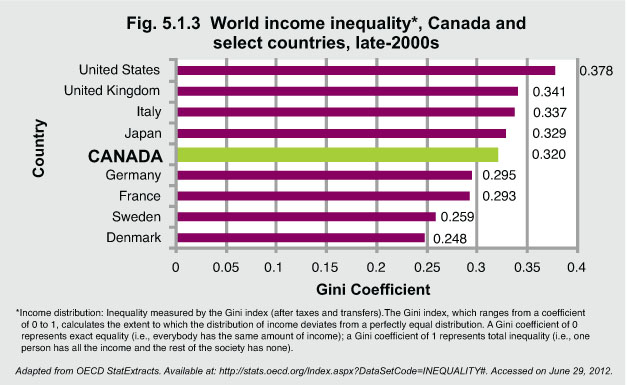World income inequality, Canada and select countries, late-2000s

The Gini index is a measure of income inequality — the higher the coefficient, the greater the inequality. Among the selected OECD countries1, Canada has a lower Gini coefficient than the United States, the United Kingdom, Italy, and Japan but a higher coefficient than Germany, France, Sweden, and Denmark.
1OECD (Organisation for Economic Co-operation and Development) is an organization that acts as a meeting ground for 30 countries that believe strongly in the free market system.
Implications
A nation’s income inequality has a profound impact on children’s health. In a systematic review contrasting and combining results from different studies, investigators concluded that people living in places with high income inequality (a higher Gini coefficient) had an increased risk of premature death, independent of socioeconomic status, age, and gender.2
2Kondo N, et al. (2009). Income Inequality, Mortality, and Self-Rated Health: Meta-analysis of Multilevel Studies. British Medical Journal. Available at: http://www.bmj.com/highwire/filestream/398332/field_highwire_article_pdf/0/bmj.b4471 – accessed on June 29, 2012.
